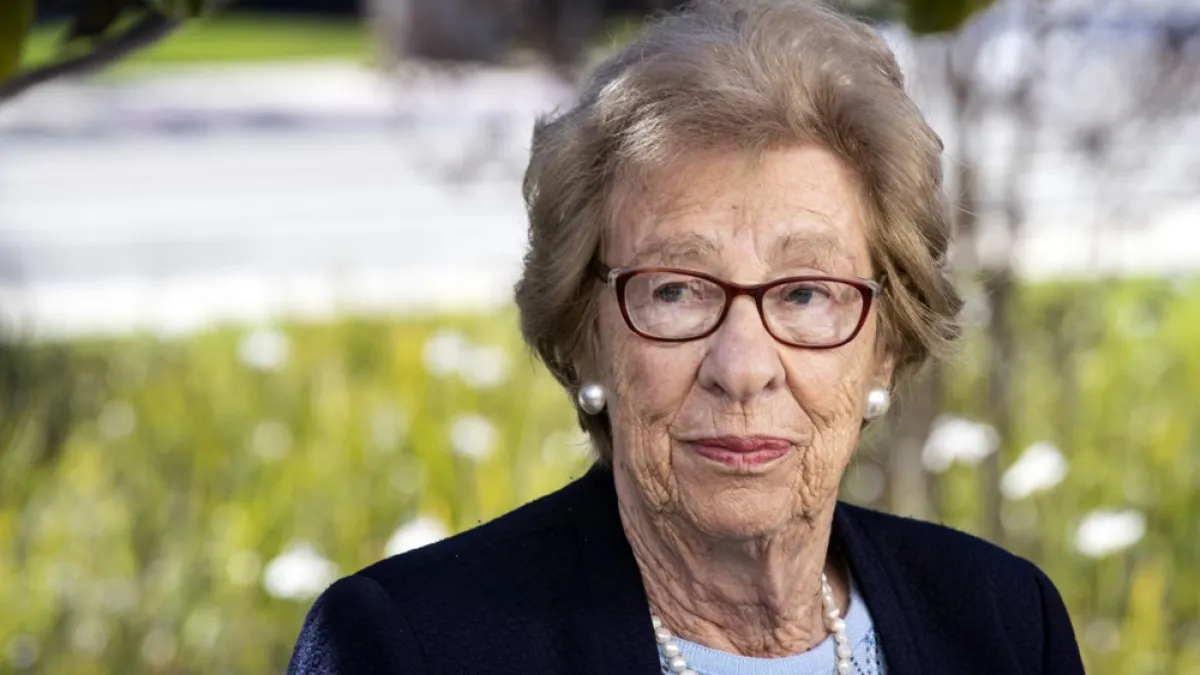Eva Schloss, Holocaust survivor and stepsister of Anne Frank, dies at 96 | History News
UK’s King Charles III praises Schloss for her lifelong work on ‘overcoming hatred and prejudice’ around the world.
Eva Schloss, the Auschwitz survivor who dedicated decades to educating people about the Holocaust, and who was the stepsister of diarist Anne Frank, has died aged 96, according to her foundation.
The Anne Frank Trust UK, of which Schloss was the honorary president, said on Sunday that she died on Saturday in London, where she lived.
Recommended Stories
list of 3 itemsend of list
The United Kingdom’s King Charles III said he was “privileged and proud” to have known Schloss, who co-founded the charitable trust to help young people challenge prejudice.
“The horrors that she endured as a young woman are impossible to comprehend, and yet, she devoted the rest of her life to overcoming hatred and prejudice, promoting kindness, courage, understanding and resilience through her tireless work for the Anne Frank Trust UK and for Holocaust education across the world,” the king said.
In a statement posted on X, the European Jewish Congress said it was “deeply saddened” by the passing of Schloss, who it described as a “powerful voice” for Holocaust education.
Born Eva Geiringer in Vienna in 1929, Schloss fled with her family to Amsterdam after Nazi Germany annexed Austria.
She became friends with another Jewish girl of the same age, Anne Frank, whose diary would become one of the most famous chronicles of the Holocaust.
Like the Franks, Eva’s family spent two years in hiding to avoid capture after the Nazis occupied the Netherlands. They were eventually betrayed, arrested and sent to the Auschwitz death camp.
Schloss and her mother, Fritzi, survived until the camp was liberated by Soviet troops in 1945. Her father, Erich, and brother, Heinz, died in Auschwitz.
After the war, Eva moved to the UK, married German-Jewish refugee Zvi Schloss, and settled in London.
In 1953, her mother married Frank’s father, Otto, the only member of his immediate family to survive.
Anne Frank died of typhus in the Bergen-Belsen concentration camp at the age of 15, months before the end of the war.
Schloss did not speak publicly about her experiences for decades, later saying that wartime trauma had made her withdrawn and unable to connect with others.
“I was silent for years, first because I wasn’t allowed to speak. Then, I repressed it. I was angry with the world,” she told The Associated Press news agency in 2004.
But after she addressed the opening of an Anne Frank exhibition in London in 1986, Schloss made it her mission to educate younger generations about the Nazi genocide.
Over the following decades, she spoke in schools, prisons and international conferences, and told her story in books, including Eva’s Story: A Survivor’s Tale by the Stepsister of Anne Frank.
She kept campaigning into her 90s.
“We must never forget the terrible consequences of treating people as ‘other’,” Schloss said in 2024.
Schloss is survived by their three daughters, as well as grandchildren and great-grandchildren.
